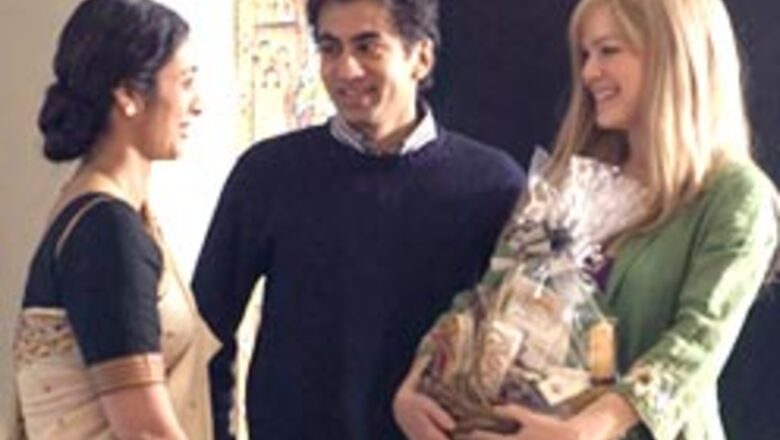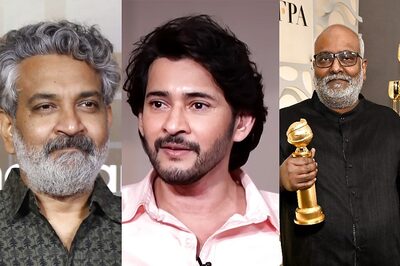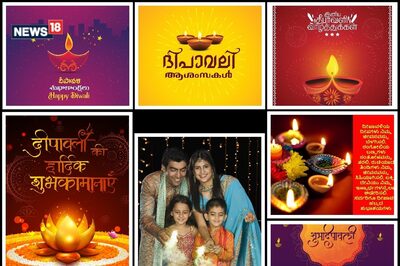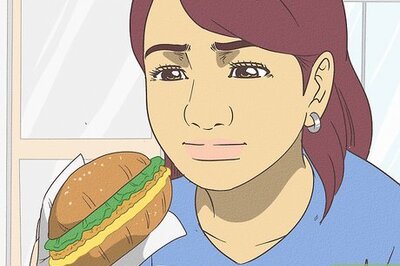
views
“Didi, when you cook chicken or mutton, please send some over as well… we love meat, but our grandmother does not allow it in the house,” piped in the children of a family one knows as we discussed favourite foods. Having lived around strict vegetarians – especially those who are vegetarians due to religious reasons – one knew that it could be a huge thing if the grandmother ever found out.
One wondered if the family considered the grandmother’s beliefs to be archaic… Perhaps they read one’s expressions because the kids’ mother piped in, “My husband and kids eat meat because they enjoy it, my mother-in-law completely believes it’s a sin. I am opposed to the idea of killing a creature and so I’m a vegetarian by choice. As for my children, we wanted them to make their own choice. My mother-in-law believes in ‘untouchability’ too, which is also part of her religious beliefs… Do I allow my children to follow that?”
That’s just one instance of age-old beliefs clashing with current-day choices.
Recently a friend, who’s in love with a ‘white’ man, sent a panicked email, “He is meeting my parents… How should he address them? You know, they don’t call everyone uncle-aunty, they call people by their first names. If he addresses my father by his name, Papa won’t give him another chance; it will be over. What do I do?” she wrote. Her panic was justified.
Addressing elders by their first name has always been seen as a sign of disrespect in India. If we ‘Sir-ed’ seniors at work, we’ve had a name for every other relationship, be it mausi, maama, bhaiya, didi, uncle or aunty. And when confused about the right nomenclature, there is the ‘ji’ suffix to a person’s name. However, times are slowly changing and at least in corporate work environments, first names are the norm.
My friend’s crisis was solved with her boyfriend sticking to addressing her father with ‘Sir’; the solution in other cases though, might not be as simple…
For those who’ve been following, the discussion has intensified on the issue of eloping and if that’s the only solution when faced with parental opposition. There have been myriad reactions from readers ranging from agreeing to our protagonists', Amit and Nisha's decision to those that say they'd rather wait a lifetime than elope with the one they love or marry someone else... The solution is as convoluted as the dilemma.
Recently a distressed, 55-year-old father wrote in from the United States. His son is in love with an American girl. The father doesn’t know what to do and writes thus:
“Help me please. What if the boy (say Akash) lived with his Indian Gujarati Jain somewhat conservative parents in the U.S. and instead of Nisha the girl was Nancy, a white American? I am Akash's 55-year-old father living in a joint family with my parents. My traditional Gujarati Jain wife and I are okay with Akash marrying any vegetarian Indian girl. If that didn't happen, we would reluctantly agree to him marrying any vegetarian girl. But Nancy is not even vegetarian -- and does not even want to be...” (Continued on next page)
NEXT PAGE >>> I’d rather my son marry an Indian non-vegetarian Muslim
PAGE_BREAK
“…Some of you may think that she is frank and truthful about that upfront. But that does not solve our problem. Please do not tell me that we are responsible for raising Akash in the USA and this is the most natural consequence of that. I already know that. It is neither Akash’s fault nor Nancy's that they love each other dearly. But we are very confused and nervous about all the complications that could follow in REAL life after marriage when the fairy tale is over and religions and culture clash. I would prefer Akash marrying an Indian non-vegetarian Muslim girl than a non-vegetarian American. At least the Muslim girl will be sensitive to the Indian values. Please give us a practical solution.”
With the world converging into our drawing rooms and people leaving their countries to work in other nations or migrating; we are learning new things, meeting more people and are being exposed to different lifestyles. What happens when we choose to adopt some facets from another culture? Or want to marry someone from a different way of life?
Sometimes when we see a new lifestyle, we might want to adopt certain facets that appeal to us. What is so wrong in adopting something good from another culture? Or marrying a person – even though from a different race/ culture – who we can see a future with? Why is it always taken to be at the cost of our culture? Is our culture and the upbringing we give our children that weak?
In the given situation, nowhere does the email mention if Akash is a vegetarian or even wants to be one or what are the ‘values’ he believes in. What if he remains a vegetarian and Nancy happily continues to eat meat? It is obvious from the email that the father is not as concerned about meat-eating as he is about Nancy being an American, a ‘white’. The real issue seems something else…
The father is concerned that Nancy will not be able to uphold ‘Indian values’. Does his son Akash believe in those values? Perhaps Nancy is better suited to adopt the values that Akash believes in. On one hand the email states that the father understands how Akash and Nancy “love each other dearly”, on the other, he is confused. What could be confusing when the love is so apparent?
Again the email talks about the ‘fairy tale’ getting over: Can the father guarantee a happily-ever-after if Akash were forced to give up on the woman he loves and marries someone else? What if Akash marries a girl who is an epitome of Indian values but cannot keep him happy? Perhaps both Akash and Nancy understand what is important to them. Perhaps Nancy will make a better wife to Akash than any Indian girl – Hindu or Muslim – ever can. They love each other and will perhaps work harder at making their union work.
The situation reminds one of the NRI-centric movie, Flavours (Anjan Srivastav, Pooja Achrekar of Mr & Mrs Waghle fame) where the US-settled son falls in love with an American girl. The parents had exactly the same trepidations. One of the most touching scenes in the movie is when the girl – on her wedding day – comes out wearing the Indian sari the mother-in-law had gifted her. Then there is the more recent The Namesake (Tabu, Irrfan Khan), where ‘Gogol’ marries an Indian girl and suffers…
Perhaps parents should trust their children a little more: On the fact that they can perhaps make the right decisions for themselves and that those decisions don’t always have to be for the worse. A mixed-marriage does not always have to be bad news; it can be a case where the fairy tale continues and once married, Akash-Nancy bring up their children with the best of values from both their different worlds.
What did you think of this feature? Got a similar experience to share? Please feel free to use the comments sections to leave feedback. You could also email the author with your queries, thoughts and suggestions on: [email protected]



















Comments
0 comment